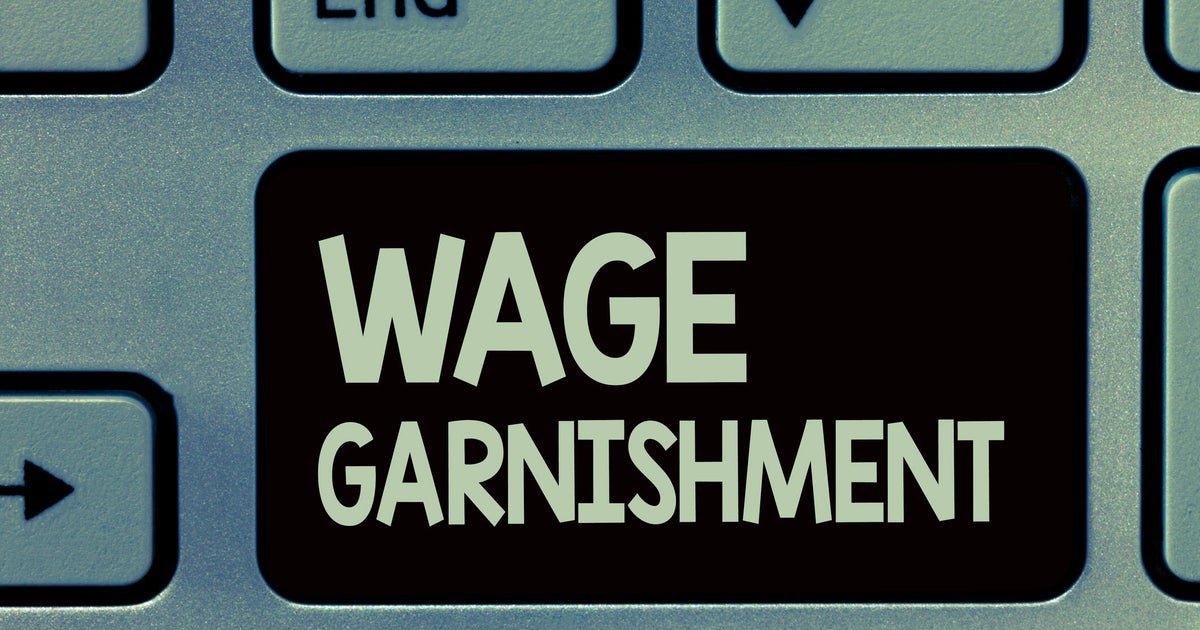Getty Images/iStockphoto
If debt collectors have been calling you or sending letters about old debts you owe, it can be tempting to just ignore them, especially if you don’t have the money to pay. After all, most types of overdue debt will eventually fall off your credit report after the statute of limitations ends, so if you can’t afford to pay off the balance, you may think it’s best to wait it out. But when debt collectors can’t reach you by phone or mail, they typically won’t just give up and move on. In many cases, they just turn to more aggressive collection tactics, like lawsuits, and then subsequent liens and wage garnishment, to try and collect what’s owed.
Wage garnishment allows creditors to take money from your paycheck before it even reaches your bank account, and if you find yourself in this situation, both the immediate financial impact — and the uncertainty about how long it will continue — can greatly increase your financial stress. But once a creditor obtains a court judgment against you, wage garnishment becomes a very real possibility, so it’s important to know the rules regarding how long this type of debt collection tactic can last.
Some people assume wage garnishment will last a few months, while others fear it could go on indefinitely. The reality is that the answer to how long wage garnishment lasts isn’t as straightforward as you might hope. Below, we’ll break down what you should know.
Get help with the debt you can’t afford to repay now.
How long can debt collectors garnish your wages for?
It’s important to note that the duration of wage garnishment depends primarily on the type of debt and the laws in your state. That said, most garnishments can continue until the debt is fully satisfied, which could mean years of reduced paychecks, depending on how much you owe.
For most consumer debts like credit cards, medical bills or personal loans, wage garnishment typically lasts until the original debt amount is paid off, along with any accumulated interest, court costs and attorney fees. Since interest continues to accrue during the garnishment period, and collection fees can pile up, you might find yourself paying significantly more than the original debt amount.
Federal law limits how much can be taken from your paycheck via wage garnishment, though. The maximum is generally 25% of your disposable income or the amount by which your weekly earnings exceed 30 times the federal minimum wage, whichever is less. However, this doesn’t shorten the garnishment period; it just determines how much comes out of each paycheck.
Student loan garnishments operate under different rules, however. Federal student loans don’t require a court judgment for garnishment, and the government can generally take up to 15% of your disposable income. These garnishments are administrative, meaning that the government can simply start garnishing your wages and continue until the loan is either paid in full, you make satisfactory payment arrangements or you successfully challenge the garnishment.
Tax debts present yet another scenario. The Internal Revenue Service (IRS) can garnish wages until the tax debt is fully satisfied and the agency is not bound by the same limitations as other creditors. The IRS can take a larger percentage of your income, too.
Find out more about your debt relief options today.
How to stop or reduce wage garnishment
If wage garnishment is making it impossible to cover your basic living expenses, you may be able to reduce or eliminate it. Here’s how:
- Challenge the garnishment in court. If you believe the wage garnishment was improperly issued or the amount being removed from your paycheck is excessive, you can request a hearing to contest it. In some cases, the court may reduce the amount being garnished from your check if you can prove financial hardship.
- Negotiate with the creditor. Some creditors and debt collectors may be open to settling the debt for less than the full balance in return for a lump sum payment, which could end the garnishment.
- File for bankruptcy. While it’s not the right move for everyone, filing for bankruptcy can stop most wage garnishments immediately through an automatic stay. Certain debts, like child support, aren’t affected by this protection, but others, like credit cards or medical bills, may be wiped out altogether.
- Check for state protections. Some states shield a larger portion of your income from wage garnishment or offer exemptions for specific situations, like being the head of the household.
Whatever route you take to resolve the issue, though, the key is to act quickly. Once wage garnishment starts, every paycheck will be impacted until you take steps to resolve the situation.
The bottom line
If your wages are being garnished, the process will typically continue until your debt is fully satisfied. However, you have options to minimize the damage to your finances, but you’ll need to act quickly, preferably before it starts. So, don’t ignore debt collection lawsuits or hope they’ll disappear. Instead, consider consulting with a debt relief expert who can help you understand your rights and explore alternatives. Taking action early is almost always better than letting the garnishment run its course.
